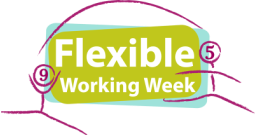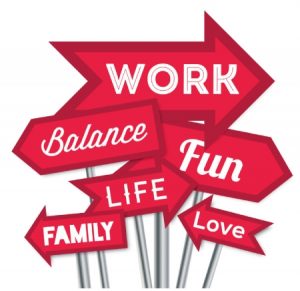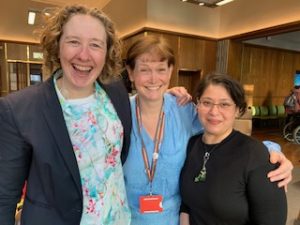 Continuing with our Flexible Working blog series, to raise awareness about the benefits of flexible working and empower you to feel able to talk about it to your line manager, I spoke to Amanda Weston, who works at the Campus for Ageing and Vitality, about her experiences working part time.
Continuing with our Flexible Working blog series, to raise awareness about the benefits of flexible working and empower you to feel able to talk about it to your line manager, I spoke to Amanda Weston, who works at the Campus for Ageing and Vitality, about her experiences working part time.
What role do you work part time in?
I’m a Research Associate (RA). In my current role, I’m working on a project that looks at the evolution of warning signals in insects and the design of those signals. Most of my time is spent either in the lab running experiments, or analyzing data and writing papers, but I’ve also supervised a number of postgraduates and project students over the years. I work 80% FTE over five days, on an extremely flexible schedule.
How have your hours changed over time?
I’ve been working 80% FTE since I had my son 9 years ago, to allow me to care for, and have more time with, him. Initially, when I returned from maternity leave I worked 4 days, Monday to Thursday, with Friday off. But as my son got older I changed my schedule so I was working the hours flexibly over 5 days, which I found a very easy change to make and it worked out really well.
How have you advanced your career while working part time?
I’ve never seen working part time as a hindrance to my career, or that it has stopped me achieving what I’ve wanted to achieve. After my PhD, I got my first RA role straight away, which I stayed in for 3 years before moving to an unrelated research role for a year. After that, I successfully applied for a Faculty Fellowship, which I feel has been my biggest achievement so far. Now I’ve returned to being an RA, but this was out of personal choice, and not driven by me wanting to work part time.
What advantages has working part time brought you?

For me, working part time has always been about allowing me to effectively balance my family and work life. It has allowed me to continue to pick up my son from school some days, and not have to always rely on after school- or summer clubs. Everything has worked out really well for me and I feel very lucky to have had this flexibility.
Where did you find support while working part time?
I’ve always felt supported in my decision to work part time, by both my close colleagues and my family. My supervisors have always been particularly supportive, and have made it clear that I would continue to be supported should I ever choose to decrease my hours further. I’ve also found the workshops I’ve done on grant writing and CV writing to be particularly helpful for career advancement.
What challenges did you face while working part time?
I haven’t really experienced any major challenges. Some busy weeks, I might find myself working what are essentially full time hours or longer, despite officially working 80% FTE, but I think that this is inevitable when you’re working in a research environment and running experiments. Overall, this hasn’t been a big problem for me and it has helped a lot that I’m able to be flexible with my hours from week to week, so if I work extra hours one week then I’m able to take them back in the next.
What single piece of advice would you give to others who are considering working part time?
If you’d like to work part time, you should carefully consider the flexibility of the role you’ve got and decide if it would be suitable to work in part time hours. For example, in a research role you need to be able to easily alter your schedule depending on what you’re working on. You need to think about the responsibilities you’ve got and what needs to change in order for them to fit into your proposed timeframe.
 Thank you so much to Christina, and we wish her continued success working flexibly in her career!
Thank you so much to Christina, and we wish her continued success working flexibly in her career!



 Where did you find support with working part time?
Where did you find support with working part time? As part of our
As part of our 

